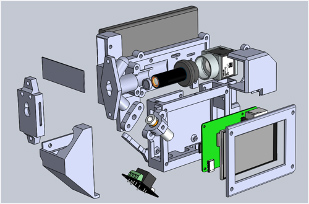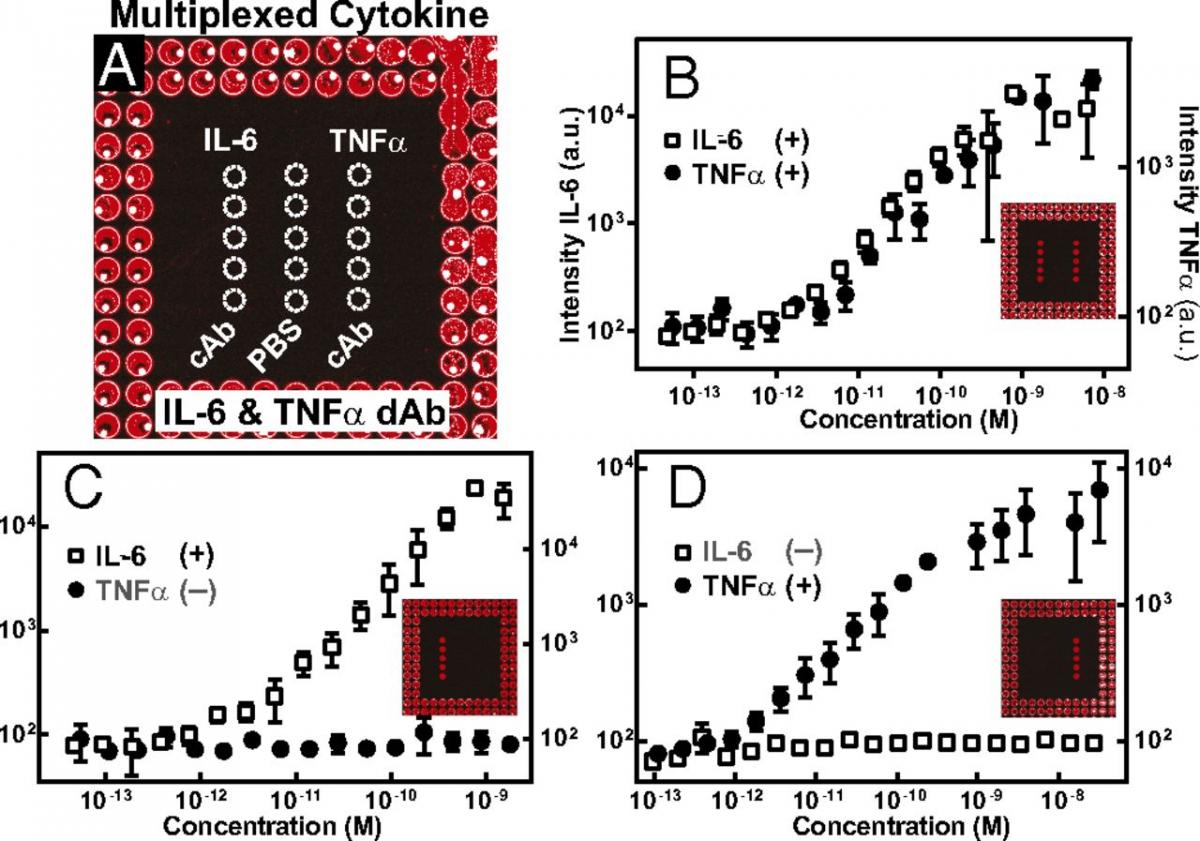Microfluidics: We are actively developing microfluidic versions of the D4-POCT to decrease the user intervention to simply adding a single drop of blood and a few drops of buffer to carry out the D4 assay. The automated chip would passively complete the assay, wash the surface, and then dry without intervention for a true one-step test. This implementation would reduce the risk of user error, and limit exposure to hazardous waste. To achieve this goal this goal, we are developing microfluidic chips for biological fluid handling and a portable detector for assay readout.

Handheld Optical Detector: To make the D4 fully point-of-care, we are developing an analyte-sensitive, user-friendly, portable, economical, and rapid fluorescent detector— the D4Scope. The current prototype (the “Einstein”) matches the fluorescent sensitivity of clinical-grade scanners, for a fraction of the cost. The Einstein is constructed from a Raspberry Pi, off-the-shelf optical components, and custom CAD 3D printed parts. A custom Python-based touchscreen user interface runs on the device’s touchscreen, which fully automates the D4 detection step. Within 5 seconds of a button press, the D4 can be scanned and biomarker concentration is reported. Further development is going towards both hardware and software optimization for user friendliness and reproducibility.
